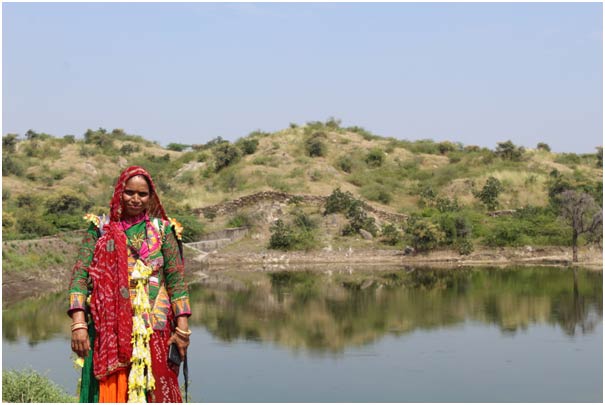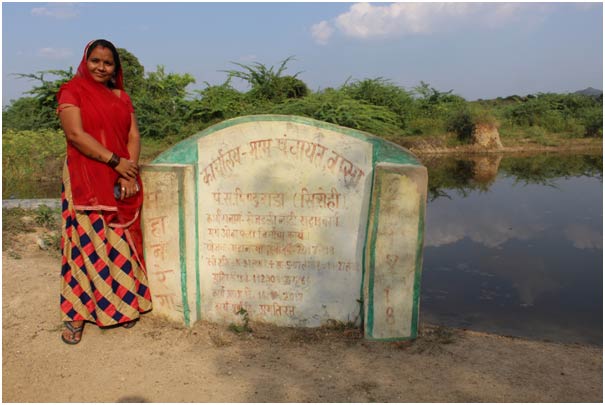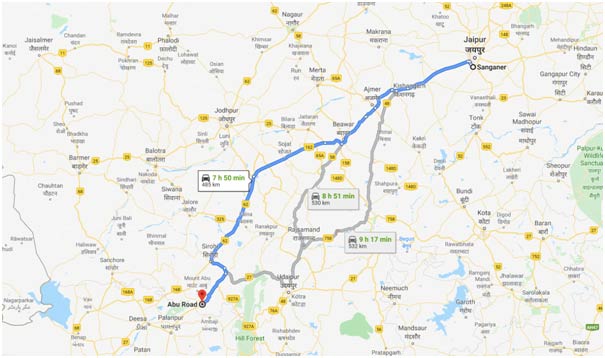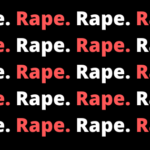In the second part of our evaluation visit for our five year project “Water Conservation and Climate Change Training Program in Jaipur & Abu Road, Rajasthan (2013-2018”, we visited Abu Road & Pindwara Block in Southern Rajasthan.
Our first stop here was the Jan Chetna Sansthan office, our local partner for the project. We met with Richa ji, the director who has done really incredible work with the women of the area on forest and tribal rights. Our Evaluator, Richa ji, a project coordinator from JCS, and Lakshita and I (CSR team members) set off to Nichlagarh Village. Here we met with Sharmi Bai, the local sarpanch, and saw some major water sites that she had worked on post the conclusion of the project (trenches, small streams, and an anicut).


Image: Sharmi Bai, leading the way
We concluded the day with a meeting with several Elected Women Representatives from across Abu Road and Pindwara Block at the JCS office. The discussion was centred on the importance of water conservation and the manner in which local political bodies contribute to the initiatives that the EWRs propose.


Image: Evaluator, CSR team members and Somi Bai discussing the need for groundwater recharge
On our second day, we visited two villages in Pindwara Block: Basant Garh& Vasa. In Basant Garhwe met with Somi Bai, the sarpanch and other community women who she had trained on water conservation and the role of women, both political actors and community members in the endeavour. In Vasa, we were introduced to Ranjana Kumari ji the Wardpanch – who showed us the individual rainwater harvesting pits she had facilitated, and some other water conservation structures.


Image: Somi Bai showing us the water sites that she worked on getting funded from the gram panchayat after our training. According to Somi Bai, there is a large amount of outward migration due to lack of opportunities. The reconstruction of this pond, used local labour through the MGNREGA scheme, which gainfully employed around 100 individuals.
We also had a meeting with EWR’s, Self Help Group women, and community members (from different panchayats) to discuss the need for more trainings and sustainable solutions to the water crisis in the region.


Image: Ranjana Kumari, wardpanch showing us the anicut constructed during her tenure
To wrap up our time in Abu Road and Pindwara Block, our evaluator, and Lakshita and I had a long discussion with Richa ma’am regarding her experiences with the project. As a women’s rights activist who had been associated with the project as an individual trainer as well through her organisation, from the very inception of the project; her insights were invaluable. Primarily she emphasised the need for long term sustainable projects that seek to build capacities of individuals and organisations.
It was an amazing learning experience to be able to witness the effects of our trainings and engage with our trainees and local partners, and we look forward to working further on long term projects that highlight sustainable impact.
Note: this is part two of a two part blog on our evaluation visit.





